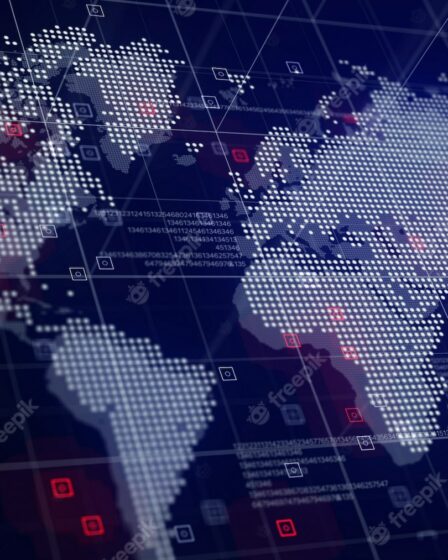The ISIS – Islamic State of Iraq and Syria, previously called al-Qaeda in Iraq under the leadership of Abu Musab Al-Zarqawi and currently called the Islamic state (after declaring Iraq a ‘Caliphate’) – has become a major non-state player in the conflict in Iraq as well as Syria. The organisation, which has its origins in Iraq, had shifted its base of operations to Syria when the civil war began in the country to oust the Assad regime.
Young Voices
Hydro Power Projects on the Yarlung Tsangpo and Concerns for India
The internet has become the primary medium of communication in the era of globalization, which is highly dominated by the information and communication technologies. The internet – network of networks – deals with massive data which is transmitted over secure as well as insecure channels and media. The security requirement of data is determined by the value or importance of data.
India and the US Re-balance to the Asia-Pacific
With 2014 marked as the Chinese New Year of the Horse, India and China have galloped together into taking new strides in their bilateral relations.
Space Technologies Witnessing Exponential Growth
The Intergovernmental Panel on Climate Change (IPCC), the sole recognized 'international' body that studies the scientific, technical and socio-economic effects of climate change, has come out with yet another report in 2014, which has gone one step ahead this time to include a chapter on 'human security'. The Working Group II that collates scientific information regarding Impacts, Adaptation, and Vulnerability, has provided details with regard to the ways in which climate change would affect cultures, values and societies.
From Swords to Daggers: The Advent of Tactical Nuclear Weapons in Pakistan
Dissent in China is not something new. A long tradition of political dissent is an integral part of Chinese history and owes much to Confucianism and Daoism. Despite the fact that Confucianism and the state has been historically fraught with conflict and tensions, the same Confucian doctrines that provided moral justifications for state control and power were also used against cruel and tyrannical rulers who could not deliver honest, compassionate and conscientious rule.
SAARC ‘with’ China: An Opportunity with a Multitude of Possibilities
India-Japan relations have immensely improved in recent times becoming much more stable and multi-dimensional in nature. Both sides now accord utmost importance to the relationship and have mutually agreed to augment the political, economic and strategic aspects of the partnership. The changing geopolitics and geo-economics of Asia-Pacific affected by China's rise has invariably brought India and Japan together.
The Geopolitical Subtext of IPCC’s New Report: Will it Put Climate Action in Jeopardy?
Since the 1990s, as India's influence in world politics has grown, the notion of the "extended neighbourhood" has permeated foreign policy thinking in both political and academic circles.
New Methods of Dissent Control in China
Climate change is a global challenge that is largely taking place due to increased levels of atmospheric greenhouse gases (GHGs), produced by the use of fossil fuels. The change in the climate is considered to be one of the greatest threats to Planet Earth. Climate variability is not a new phenomenon. In the past, it is known to have varied considerably at times too. However, scientific evidence has revealed that recent changes in climate triggered by both natural and human-made causes are catastrophic.
Modi and India’s Policy towards Its Immediate Neighbours – Trade and Commerce over Politics
The South Asian Association for Regional Cooperation (SAARC), established in 1985 can be seen as an attempt to foster cooperation that never quite took off, in a region that has been marred by conflicts and animosity in spite of geographical and cultural similarities. The formation was initiated by Bangladesh's Ziaur Rahman and taken forward by India's Rajiv Gandhi and Pakistan's Benazir Bhutto, in an attempt to overturn the hostility that characterizes the region. Political will to necessitate cooperation still evades most of its members.
The Phenomenon of ‘Technology Transfer’: Lessons from China
The final frontier of outer space is yet to be transformed into a battlefield. If the present shaping up of the geopolitics of the world is taken into perspective, the next two decades will witness a global arms race, culminating in a sophisticated weapon system being put into the orbit.
